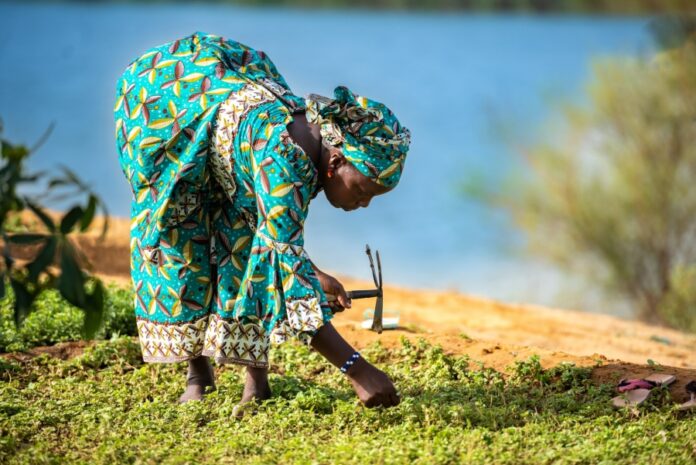Illustrative Image: Integrating Environmental Sustainability into African Social Policies: Strategies for Resilience, Equity, and SDG Alignment
Image Source & Credit: Journal of International Affairs Columbia University International
Ownership and Usage Policy
A recent study by Adebayo, W. G. (2025) titled “Resilience in the face of ecological challenges: Strategies for integrating environmental considerations into social policy planning in Africa“, published in Sustainable Development, reveals that African social policies lack environmental integration, increasing vulnerability; proactive, locally driven, sustainable frameworks are vital for resilience and equitable development.
“
African social policies largely ignore environmental sustainability, increasing vulnerability, and calls for locally driven, resilience-focused frameworks.
– Adebayo, W. G. 2025
The study presents an in-depth analysis of how African nations can strengthen their responses to growing ecological crises through adaptive, inclusive, and sustainability-orientated social policies. The research emphasizes that Africa’s escalating environmental challenges—such as climate change, biodiversity loss, and resource depletion—demand an urgent rethinking of social policy frameworks. By integrating environmental concerns into areas like agriculture, healthcare, housing, and education, governments can build more resilient and equitable societies capable of withstanding ecological shocks. According to the study’s findings, the most pressing ecological threats include flooding (32%), drought and desertification (13%), and food insecurity (11%). These issues disproportionately affect farmers, women, children, and the urban poor, highlighting deep social and economic vulnerabilities. However, despite the severity of these challenges, policy integration remains limited, hindered by funding constraints, weak political commitment, governance inefficiencies, and low public awareness.
To address these gaps, Adebayo proposes a series of strategic interventions. These include fostering cross-sectoral collaboration between governments, NGOs, and local communities; promoting community-driven planning that leverages indigenous knowledge; and developing resilience indicators to measure adaptive capacity, disaster preparedness, and equitable access to essential services. The study also recommends the institutionalization of sustainability impact assessments, decentralized policy engagement, and the adoption of climate adaptation milestones as part of long-term planning. Ultimately, the research contributes directly to several Sustainable Development Goals (SDGs)—notably Goal 13 (Climate Action), Goal 11 (Sustainable Cities and Communities), and Goals 1 & 2 (No Poverty and Zero Hunger). By offering a replicable framework for integrating environmental sustainability into social policy, Adebayo’s work underscores the critical importance of empowering vulnerable populations and promoting resilience as a cornerstone of Africa’s sustainable development agenda.
How the Study was Conducted
The study employed a multi-method research approach that combined policy analysis, stakeholder engagement, and mixed data analysis to explore how African nations can better integrate environmental concerns into social policy frameworks. The research began with a comprehensive policy analysis across several African countries, examining the extent to which existing social policies address key ecological challenges such as climate change, biodiversity loss, land degradation, and resource depletion. This review spanned critical sectors including disaster management, agriculture, urban planning, healthcare, and infrastructure development, enabling the identification of both strengths and policy gaps in current frameworks.
To complement this, the study engaged in extensive stakeholder consultations across 15 African countries, involving policymakers, activists, researchers, and community leaders. Through structured questionnaires and interviews, the research gathered insights on local resilience needs, perceptions of environmental threats, and recommendations for adaptive policy strategies. This participatory approach ensured that the findings reflected diverse, on-the-ground realities across varying ecological and socio-economic contexts.
The data collection process integrated both quantitative and qualitative methods. Quantitative data captured measurable indicators—such as the percentage of respondents identifying specific environmental threats like flooding or drought—while qualitative data offered deeper narratives and stakeholder perspectives on policy gaps, resilience-building measures, and the vulnerabilities of key populations, particularly farmers and women. These datasets were systematically analyzed to determine priority intervention areas and to inform evidence-based recommendations.
Guided by three central research questions—(1) What are the key environmental challenges facing African communities? (2) How can social policies better address these impacts and enhance resilience? and (3) What best practices can improve policy integration?—the study bridged theory and practice. The result is a robust framework offering actionable insights and strategic guidelines for embedding environmental sustainability within Africa’s social policy landscape, ultimately advancing resilience and adaptive capacity across the continent.
What the Author Found
The author found that African social policies remain poorly integrated with environmental considerations, leaving many communities—especially farmers and women—highly vulnerable to escalating ecological challenges such as flooding, drought, and food insecurity. The research highlights that most existing policies are reactive rather than proactive, lacking mechanisms for climate adaptation, ecological monitoring, and cross-sectoral coordination. Stakeholders across the continent overwhelmingly emphasized the need for locally informed, participatory, and resilience-focused policy frameworks that align with the Sustainable Development Goals (SDGs). In essence, the study concludes that embedding environmental sustainability into social policy planning is essential for strengthening resilience, reducing vulnerability, and ensuring equitable, long-term development in Africa.
Why is this important
Africa’s Climate Vulnerability: Despite minimal global emissions, Africa faces severe climate impacts—floods, droughts, food insecurity—that threaten development and livelihoods.
Underutilized Social Policies: Existing policies in healthcare, housing, education, and agriculture rarely incorporate environmental resilience, limiting proactive community protection.
Inclusive, Local-Centred Approach: By engaging stakeholders from 15 countries, the study ensures strategies reflect real-world needs, making policies more equitable and effective.
Actionable Roadmap & SDG Alignment: The findings support SDGs (Climate Action, Sustainable Cities, No Poverty, and Zero Hunger) and offer practical strategies for land restoration, livelihood diversification, disaster preparedness, and empowerment of marginalized groups.
What the Author recommended
- The author emphasizes developing cross-sectoral policies that mainstream environmental considerations at national, regional, and local levels, supported by sustainability impact assessments.
- The study advocates involving local communities—especially women and farmers—in participatory planning, decentralized governance, and incorporation of indigenous ecological knowledge.
- Further, implement ecological monitoring, land restoration, biodiversity conservation, and diversified livelihoods to strengthen adaptive capacity and reduce vulnerability.
- In addition, establish resilience indicators to track progress in disaster preparedness, food security, healthcare, and social services, ensuring policies align with SDGs.
In conclusion, Adebayo’s (2025) study underscores the urgent need to integrate environmental sustainability into African social policies to enhance resilience, protect vulnerable populations, and promote equitable development. By adopting locally driven, inclusive, and adaptive frameworks, governments can transform reactive policies into proactive strategies that address climate risks, biodiversity loss, and resource depletion. The proposed interventions—ranging from community engagement and indigenous knowledge integration to resilience indicators and sustainability impact assessments—provide a practical roadmap for aligning social policies with the Sustainable Development Goals. Ultimately, embedding environmental considerations into social policy planning is not only critical for mitigating ecological vulnerabilities but also essential for fostering long-term, sustainable, and inclusive development across the continent.
















 The African Research (AR) Index is a comprehensive scholarly directory and database focused explicitly on journal publishers that publish and disseminate African research.
The African Research (AR) Index is a comprehensive scholarly directory and database focused explicitly on journal publishers that publish and disseminate African research.

